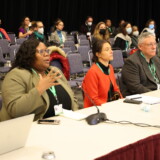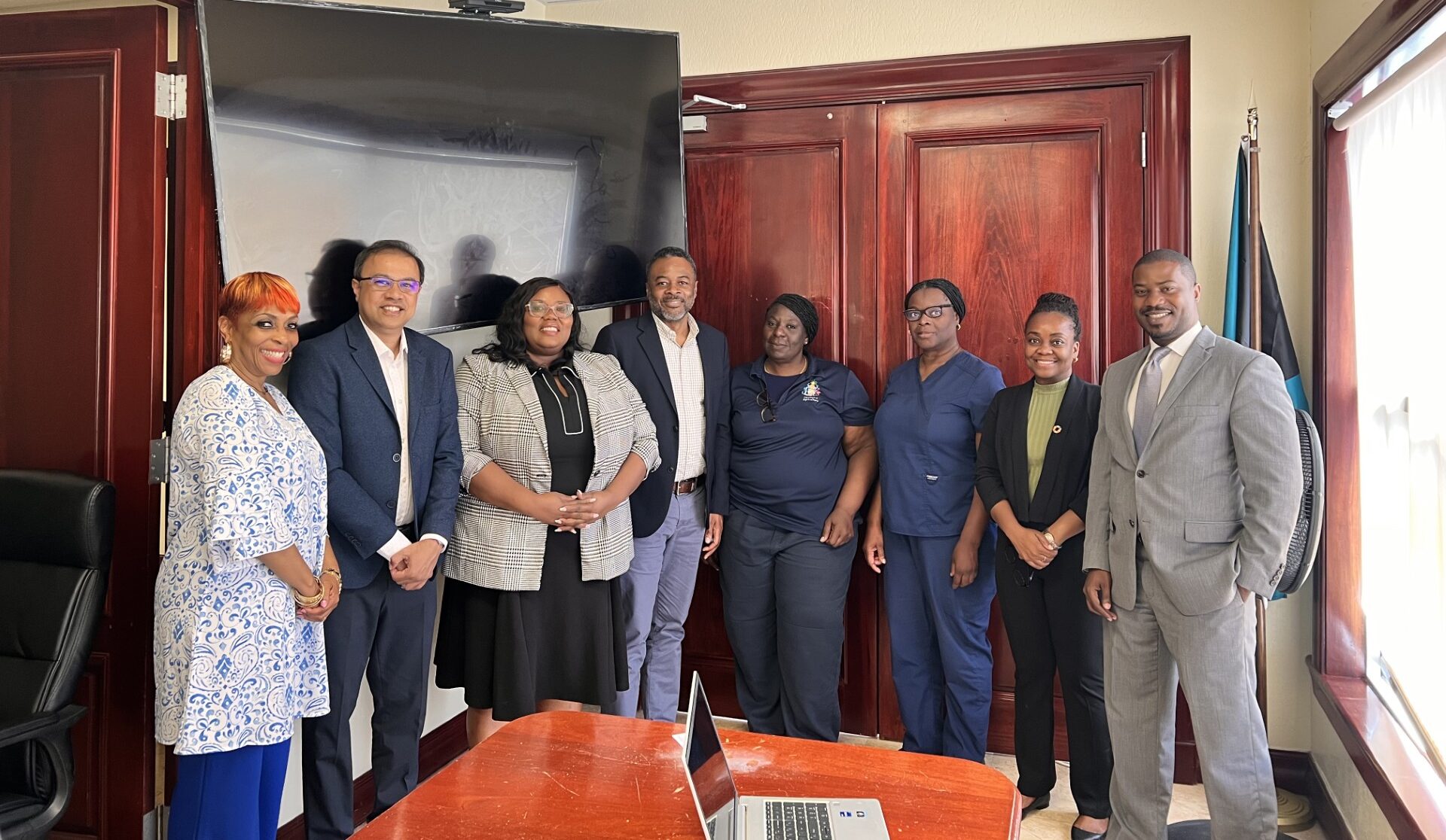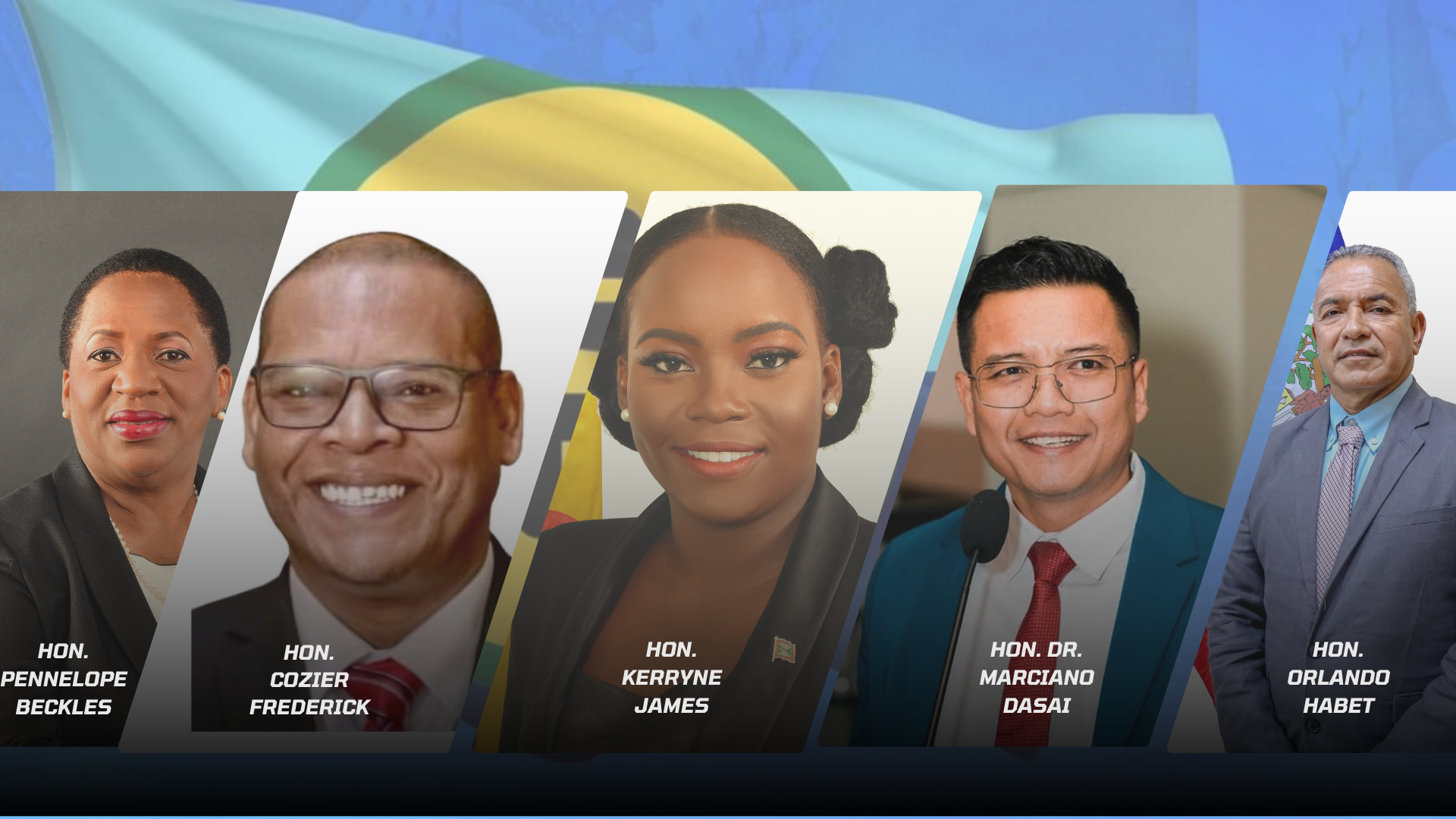
About the ACP MEAs
The programme on capacity building related to Multilateral Environmental Agreements (MEAs) in the African, Caribbean, and Pacific (ACP) countries resulted from a partnership between the European Commission (EC), the Secretariat of the African, Caribbean and Pacific Group of States (ACP Secretariat), and the United Nations Environment Programme (UNEP). The aim of this Programme is to empower key stakeholders to address environmental challenges and to reap the benefits of improved environmental management at the national and regional levels. Learn more
This project assesses the implementation of key Multilateral Environmental Agreements (MEAs) in Caribbean Small Island Developing States (SIDS), focusing on three biodiversity MEAs (CBD, CITES, CMS) and four chemicals MEAs (Basel, Rotterdam, Stockholm, Minamata). It highlights critical environmental data gaps, identifies data sources, and proposes a monitoring framework for evaluating MEA implementation. Following the adoption of the Global Biodiversity Framework in 2022, this evaluation is timely and crucial for policy development. The report is based on literature reviews and virtual stakeholder consultations and offers recommendations for improving MEA implementation across Caribbean SIDS. Learn more
Teshia JnBaptiste, Project Coordinator - MEAs in ACP Phase III Project discusses Biodiversity
The Caribbean Community (CARICOM) Secretariat and the Secretariat for the Convention on Biological Diversity will hold a sub-regional dialogue and workshop to discuss national biodiversity strategies and action plans. The event will be held at the Pegasus Hotel in Georgetown, Guyana, 15 – 19 April 2024. Representatives of indigenous peoples, youth, non-governmental organisations, regional and international organisations, local communities, and key sectors including agriculture and fisheries will participate in the dialogue and workshop. Teshia JnBaptiste, Project Coordinator – MEAs in ACP Phase III Project, Directorate of Economic Integration, Innovation and Development, CARICOM Secretariat, provides an insight into the event.
Hon. Vickram Bharrat, Guyana’s Minister of Natural Resources at the Opening of Biodiversity Workshop
The Hon. Vickram Bharrat, Guyana’s Minister of Natural Resources said that Guyana can be used as a model of how to create balance between the extraction of natural resources and the preservation of its biodiversity. The Minister was at the time delivering the feature address at the opening of a sub-regional Biodiversity Dialogue and Workshop that the CARICOM Secretariat and the Secretariat for the Convention on Biological Diversity held at the Pegasus Hotel in Georgetown, from 15-19 April 2024, to discuss national strategies and action plans on biodiversity
Message by the CARICOM Secretariat on the Occasion of International Day for Biological Diversity, 22 May 2023
Best Practices on Handling, Storage, Safety of Mercury Added Products
Media Gallery
Publications/ Fact Sheets / Briefs

EU- OACP MEAS PHASE 1, 2 & 3 Publications …
- CARICOM Customs Handbook on MEAs
- CARICOM mainstreaming guidelines
- CARICOM MEA negotiations guidance brief #1 – Intro to MEAs
- CARICOM MEA negotiations guidance brief #2 – preparing for negotiations
- CARICOM MEA negotiations guidance brief #3 – MEA negotiations language
- CARICOM MEA negotiations guidance brief #4 – Negotiations follow-up
- Training Manual on Climate Responsibility and Participation in Carbon Offset Programmes for the Caribbean Hotel Sector (final)
More publications
Press Releases / In the Media
- June 22, 2021June 6, 2025

The Bahamas is gearing up to launch an electronic system to modernise the regulation of international trade in wildlife. This milestone reflects The Bahamas’ commitment to global best practices for sustainable wildlife trade and positions the country as a regional leader in digital environmental governance. The system – electronic Convention on International Trade in Endangered Species of Wild Fauna and Flora (eCITES)-Permitting System – is an initiative of the Caribbean Hub’s efforts under the ‘Capacity Building related to Multilateral Environmental Agreements (MEAs) in African, Caribbean and Pacific Countries (ACP MEAs) Project. The project supports enforcement and compliance with biodiversity-related conventions. Developed with technical support from the CITES Secretariat, eCITES leverages modern information and communication technologies and international electronic data standards to streamline the permitting process. It also enhances efforts to combat illegal wildlife trade and promotes legal, sustainable international commerce in wild species. Following successful pilot testing and system integration with the national customs platform, the Department of Agriculture of The Bahamas will officially launch the new eCITES system. Once fully operational, the eCITES system will enable agencies such as the Departments of Agriculture, Marine Resources, and Customs to better regulate and monitor wildlife trade, ensuring compliance with both national and international standards. Representatives of the CARICOM and CITES Secretariats with Customs Officers of The Bahama To support the national launch of the system, the Caribbean Community (CARICOM) Secretariat, in collaboration with the Secretariat of the Convention on International Trade in Endangered Species of Wild Fauna and Flora (CITES), completed a two-day mission to The Bahamas last month. The visit was conducted in partnership with the Bahamas Department of Agriculture, Department of Marine Resources, and the Bahamas Agricultural Health and Food Safety Authority (BAHFSA). Team members conducted site visits, held direct engagements with The Bahamas’ CITES Management and Scientific Authorities, and led hands-on training for enforcement officers. The team also reviewed system integration and facilitated knowledge transfer to ensure the effective implementation of eCITES through The Bahamas’ national single window platform, Click2Clear. “This initiative will mark a significant milestone in The Bahamas’ efforts to align with global best practices for sustainable trade in wildlife. It also serves as a pilot that other CARICOM Member States can use to develop similar monitoring and reporting tools for combating illegal trade in wildlife,” said Ms. Teshia Jn Baptiste, Project Coordinator for the ACP MEAs Project. CITES Secretary-General, Ivonne Higuero, added: “As CITES marks 50 years since its entry into force this year, we welcome the continued effort by the government of The Bahamas in advancing eCITES towards strengthened implementation of the Convention.” Editor’s Notes: For media enquiries: Communications Unit| CARICOM Secretariat| Email: media@caricom.org| Website: https://caricom.org cites-media@un.org For general enquiries: info@cites.org About CARICOM The Caribbean Community (CARICOM) was established on 4 July 1973 with the signing of the Treaty of Chaguaramas, which was revised in 2001 to allow for the establishment of a single market and economy. The Community comprises fifteen Member States and six Associate Members. It is home to approximately sixteen million citizens, 60% of whom are under 30 years old. CARICOM rests on four main pillars: economic integration; foreign policy coordination; human and social development; and security cooperation. Through the combined efforts to build a “Community for All”, it remains one of the best examples of integration in the developing world and is the oldest surviving integration movement. The CARICOM Secretariat, the principal administrative organ of the Community, is headquartered in Georgetown, Guyana. Follow CARICOM on social media: · LinkedIn · Instagram · X · Facebook About CITES The Convention on International Trade in Endangered Species of Wild Fauna and Flora (CITES) was signed on 3 March 1973 and entered into force on 1 July 1975. With 185 Parties (184 countries + the European Union), it remains one of the world’s most powerful tools for wildlife conservation through the regulation of international trade in over 40,900 species of wild animals and plants. CITES-listed species are used by people around the world in their daily lives for food, health care, furniture, housing, tourist souvenirs, cosmetics or fashion. CITES seeks to ensure that international trade in such species is sustainable, legal and traceable and contributes to both the livelihoods of the communities that live closest to them and to national economies for a healthy planet and the prosperity of the people in support of UN Sustainable Development Goals. Follow CITES on social media: · LinkedIn · Instagram · Threads · Facebook Find out more: https://cites.org/eng
- June 22, 2021February 14, 2025

The identification of ministerial leads for negotiations around sustainable development and the environment ensures the amplification of the needs and concerns of the Caribbean Community (CARICOM), Ms. Amrikha Singh, Programme Manager, Sustainable Development at the CARICOM Secretariat said. Last year, in preparation for COP 29 negotiations, the Region identified Ministerial Champions to enhance its representation and coordination. The Champions for key areas of negotiation are: Just Transition: Honourable Pennelope Beckles-Robinson, Minister of Planning and Development, Trinidad and Tobago; Finance and the New Collective Quantified Goal (NCQG): Honourable Orlando Habet, Minister of Sustainable Development and Climate Change, Belize; Global Stocktake: Honourable Kerryne James, Minister of Climate Resilience, the Environment, and Renewable Energy, Grenada; Markets: Honourable Dr. Marciano Dasai, Minister of Spatial Planning and Environment, Suriname; and Adaptation: Honourable Cozier Frederick, Minister for the Environment, Rural Modernisation and Kalinago Upliftment, Dominica. Loss and Damage: Senator The Hon. Dr Shantal Munro-Knight, Minister of State for Climate Resilience in the Office of the Prime Minister of Barbados. The Honourable Carlos James, Minister of Tourism, Civil Aviation, Sustainable Development and Culture of St. Vincent and the Grenadines will provide support. Ms. Singh said the strategy adds political weight to the work done by technical personnel in the year-round negotiations. “It’s a very necessary arrangement and this sort of support is absolutely needed,” she said. Listen: https://vimeo.com/1056043297
- June 22, 2021January 30, 2025

The Caribbean Community (CARICOM) must remain unified and assertive in advocating for solutions that address the vulnerabilities of Small Island Developing States (SIDs). Sir Molwyn Joseph, Minister of Health, Wellness and the Environment of Antigua and Barbuda, delivered the charge during remarks at the opening of the virtual Second Annual Ministerial Post-Conference of the Parties (COP) Debriefing, which he chaired on 24 January. Minister Joseph is Chair of the Council for Trade and Economic Development (COTED) on Environment and Sustainable Development. Over 100 delegates attended the half-day debriefing, including 13 Ministers with responsibility for the Environment, senior officials, and representatives of Regional Institutions. It was convened against the backdrop of a very active 2024 on the multilateral front for the Region, with three COPs (UN Conference on Biodiversity (UNCBD), the UN Framework Convention on Climate Change (UNFCCC), and the UN Convention to Combat Desertification (UNCCD), as well as negotiations on the Plastics Treaty. Minister Joseph indicated that during his Chairmanship of the COTED on the Environment and Sustainable Development, focus will be placed on strategic leadership and regional cohesion. He said the Region’s ability to influence outcomes at the negotiation table relies heavily on timely and strategic ministerial engagement. Political leadership lends weight to the technical groundwork laid by CARICOM negotiators and underscores the urgency of regional priorities, he added. The outcomes from Climate COP29, the biodiversity discussions in Cali, the UNCCD meeting in Riyadh, and the experience at INC5, he said, remind us of the need for coordinated regional efforts. A harmonised approach enhances the Region’s ability to advocate effectively, the Minister pointed out and added that Member States must continue to foster collaboration and ensure that the Region’s collective voice is amplified. “With key meetings on the horizon, it is crucial that we remain not only proactive, but also agile and responsive in our approach. We must continuously assess progress, identify emerging challenges, and adjust our strategies accordingly. Our ability to adapt and engage strategically will be critical in securing favourable outcomes that align with our regional priorities and development goals,” the Chair said. Dr. Wendell Samuel, Senior Economic Advisor to the Secretary-General, Caribbean Community (CARICOM) and Assistant Secretary-General (Ag.) of the Directorate of Economic Integration, Innovation and Development, stressed that enhanced coordination is needed both at the national and regional levels to address the increasing complexity and multidisciplinary nature of the negotiations. He cautioned that while the world seems to be increasingly looking within their national borders, CARICOM has no choice but to look to each other since our very survival depends on it.
Our Partners









